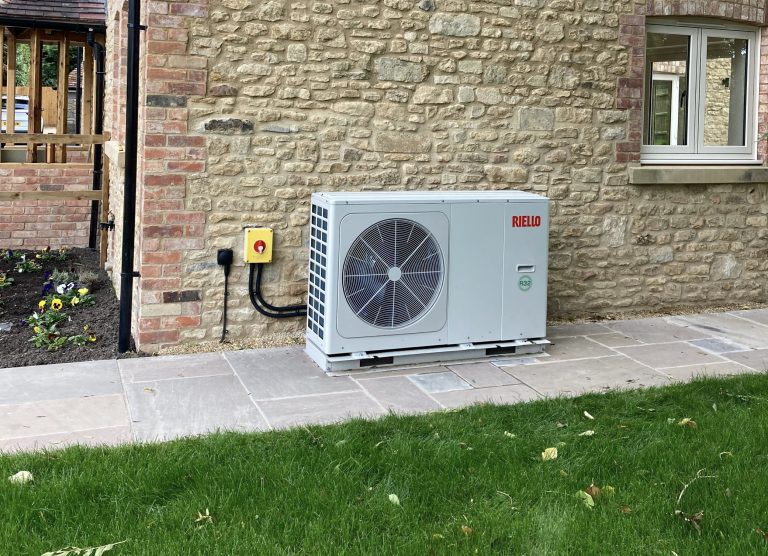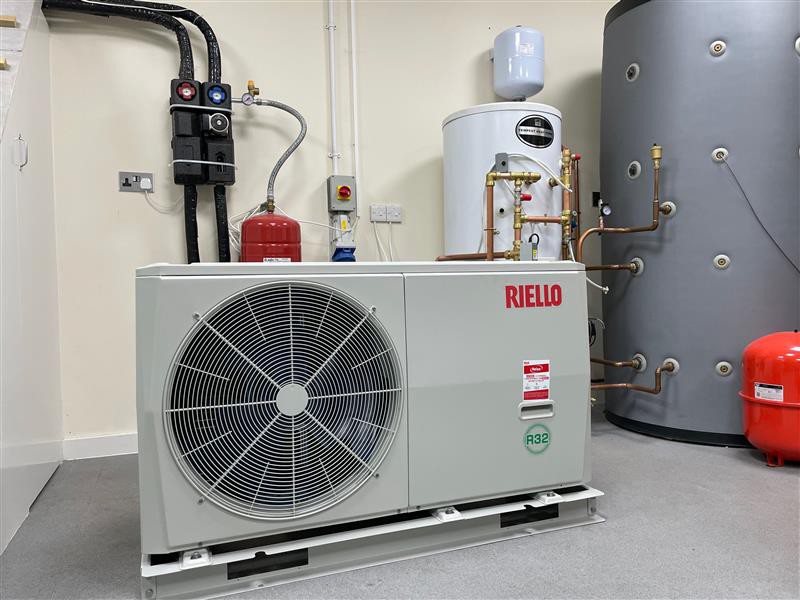Demystifying policy around the decarbonisation of heat

Neil Saunders, Sales & Marketing Director at Vokèra by Riello, Carrier GCS Europe, elaborates on the UK’s current policy landscape surrounding the decarbonisation of heat, highlighting key strategies and technologies aimed at reducing greenhouse gas emissions associated with heating.
The United Kingdom stands at a pivotal moment in its journey towards achieving Net Zero carbon emissions by 2050. As part of this goal, the UK Government has enacted various policies and initiatives to decarbonise the economy, with a particular focus on the heating sector.
A paradigm shift in heating
Central to the UK’s decarbonisation efforts is the overhaul of the Energy Performance of Buildings Directive (EPBD). The agreement requires the phase-out of gas boilers, a cornerstone of traditional heating systems. In November 2020, the Government made a groundbreaking decision to ban the installation of new gas boilers in new-build homes by 2025. This marked a significant departure from the UK’s reliance on fossil fuels and underscores the urgency of transitioning to low carbon heating alternatives.
Among the alternatives to gas boilers, heat pumps have been advocated as a primary contender. These innovative systems extract heat from the air, ground, or water, offering a sustainable and efficient heating solution for homes and businesses.
The UK Government has introduced incentives – such as grants and subsidies – to encourage the uptake of heat pumps, recognising their potential to significantly reduce carbon emissions in the heating sector.
At Vokèra, we have created a training programme to ensure we have the skilled workforce needed to support the planned growth of the heat pump market.
Hydrogen holds promise as another viable option for decarbonising heat. Through its hydrogen strategy, the UK Government aims to develop hydrogen production, distribution, and utilisation infrastructure. Boilers that can use 100% hydrogen, which produce heat through combustion with oxygen and only produce water vapour as a result, present a potential alternative to natural gas boilers, offering consumers a familiar, yet low carbon heating solution.
Plans to upscale hydrogen production, transport and storage could potentially deliver over 12,000 jobs and up to £11 billion of investment across the UK by 2030. We have products in development which are engineered for the use with 100% hydrogen via a conversion kit that is under development.
Scaling up sustainable infrastructure through initiatives such as district heating systems – which supply heat to multiple buildings from a centralised source – offer a scalable solution for decarbonising heat. By utilising heat sources such as waste heat, geothermal energy, or biomass, these systems contribute to reducing reliance on fossil fuels and lowering carbon emissions in urban environments. Currently, only 2% of UK homes are connected to a district heating network, however, more are expected to come online as the UK transitions to Net Zero over the coming decades. Continued Government support through funding and incentives will be critical for the expansion of district heating networks across the UK.
Utilising organic materials like wood pellets to power biomass boilers, or photovoltaics like solar thermal systems – harnessing sunlight to generate heat – provide additional renewable heating options for consumers. These technologies offer opportunities to diversify the UK’s heating mix, particularly in rural areas or locations with abundant biomass fuel sources and ample sunlight.
As the UK transitions to low carbon heating technologies, safeguarding energy security remains paramount. While renewable energy sources offer environmental benefits,

maintaining a reliable and resilient energy supply is essential. Policy measures must prioritise energy security alongside sustainability to mitigate risks and safeguard against disruptions in heating provision.
Empowered decision-making
Recognising the diverse needs and preferences of consumers is crucial in the transition to sustainable heating. Providing consumers with a range of options and empowering them to make informed choices aligns with principles of consumer sovereignty. Factors such as upfront costs, operating efficiency, reliability, and personal preferences should be considered in shaping policies and incentives for low carbon heating technologies.
The role of manufacturing
Manufacturing plays a pivotal role in the transition to low carbon heating solutions. By embracing a technology-agnostic approach, manufacturers can drive innovation, optimise production processes, and meet evolving market demands. This strategy fosters innovation, collaboration, and cross-sectoral partnerships, propelling advancements in decarbonising heat. By embracing openness to new approaches and leveraging emerging technologies, the UK manufacturing sector can expedite its transition towards a sustainable and secure energy future.
A sustainable heating future
The phase-out of fossil fuel gas boilers and the adoption of low carbon heating technologies represent pivotal steps in the UK’s journey towards achieving Net Zero carbon emissions.
Through bold policy measures, investment in innovative technologies, and engagement with consumers and industry stakeholders, the UK can achieve the goal of decarbonising heat.
At Vokèra, we are versatile in our approach and will adapt to the requirements of each project ensuring we specify the most reliable and efficient heating solution for your circumstances. By prioritising sustainability, energy security, and consumer choice, we believe the UK can meet the requirements outlined in the updated EPBD and build resilient and sustainable heating solutions fit for the challenges of the 21st century.







